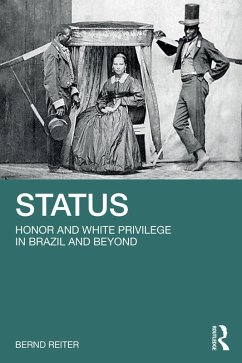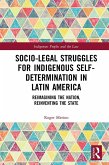Combining the works of Tönnies, Weber, and Bourdieu with those of Guerreiro Ramos, Raymundo Faoro, Florestan Fernandes, and Jacob Gorender, Reiter contends that Latin American societies are best understood as status societies where the organizing principle is not class, gender, or race alone, but honor - a set of cultural norms, behaviors, and practices that confer social recognition and prestige. Status is not purely hereditary, nor is it solely a function of economic class. Instead, it is a multifaceted construct that incorporates elements of race, class, gender, cultural capital, behavior, and descent.
A passionate and illuminating alternative to the study of inequality in Latin America, this book adds important nuance to discussions of how to devise more equitable and inclusive strategies for the future.
Dieser Download kann aus rechtlichen Gründen nur mit Rechnungsadresse in A, B, BG, CY, CZ, D, DK, EW, E, FIN, F, GR, HR, H, IRL, I, LT, L, LR, M, NL, PL, P, R, S, SLO, SK ausgeliefert werden.









